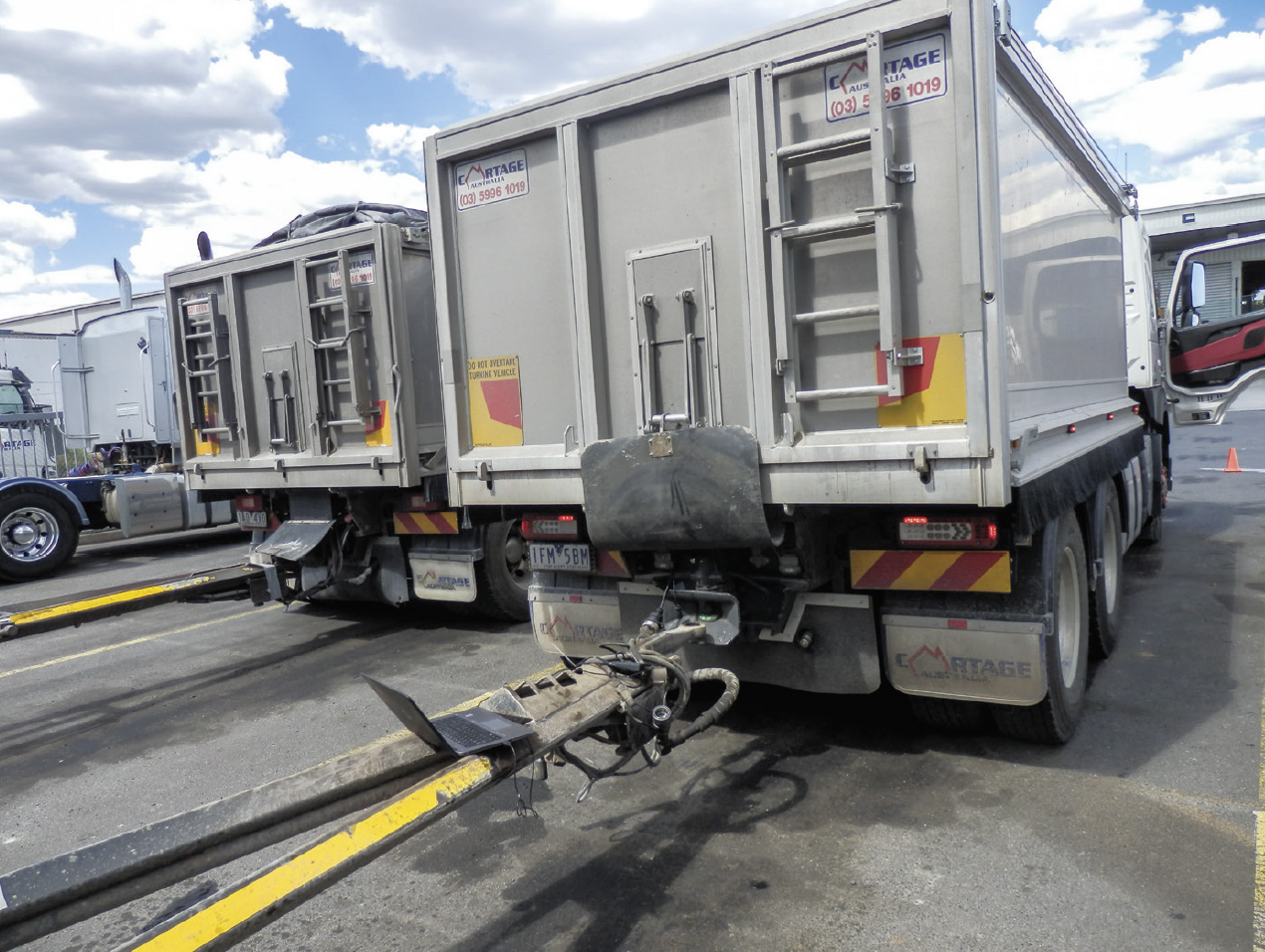Modern braking technology offers transport operators vital information that can affect equipment longevity and performance, which is why Gough Transport Solutions is helping its clients learn more about the advantages of using the Wabco EBS operating data recorder.
In terms of Performance-Based Standards (PBS), road transport fleets are investing in running gear that is tailored for optimal safety and efficiency, which often involves the integration of Trailer Electronic Braking Systems (TEBS). This innovative hardware can provide drivers and operators with business intelligence – via specialised hardware and software – that can transform how a fleet uses its equipment to improve its return on investment.
The Operating Data Recorder (ODR) – a standard feature found in all WABCO TEBS – is capable of tracking and recording data for up to 600 trips (see breakout box). However, as it is a function that is sometimes overlooked by fleet operators, Nick Hope, National Key Account Manager – Braking at Gough Transport Solutions (GTS), is taking on the task of educating his customers on how to use the information to learn from their equipment. “The ODR is a really good tool for fleet managers and drivers,” Nick says. “It collects data such as distance, speed, axle load and different types of braking events, such as brake pressures, prevented rollovers and disc brake thicknesses. The data can then be extracted as a report, giving fleets accurate and detailed information to use for both short- and long- term analyses.”
Nick adds that part of the GTS promise to offer ‘world class service’ to its customers involves rallying his team of experts to provide advice on how to use the stored data to plan fleet movements more efficiently while educating drivers about their braking habits. The ability to help drivers understand the intricate details of how they use brakes is especially important, he says, as it provides an opportunity to fix wasteful behavior such as heavy or sudden braking.
“In some cases, such as when drivers are transporting heavy aggregate loads, the data showed that they were consistently braking late and hard, which was wearing down the brakes and causing rotor damage,” Nick explains. “Showing the drivers the data meant they could see exactly what they were doing and adjust their habits to go easier on the brakes.”
For one fleet, Nick says that analysing the data revealed that heavy brake pad wear was occurring due the particulars of the routes the vehicles were travelling, with high levels of braking evident around roundabouts, steep roads and stop/start traffic. “The operator was able to learn from the information and choose a better route that would minimise wear on the brakes,” Nick says. “By changing routes and educating its drivers on how to use brakes more efficiently, the fleet was not only able to get the most out of its brakes, but also reduce fuel consumption and add 15,000km to its tyre life.” As well as reports for analysis at the office, the system can also provide real-time feedback to drivers, such as displaying a warning light on the truck’s dashboard when disc brakes reach a pre-determined thickness. “Using this information has helped one of our fleet customers to avoid brake failure and reduce unscheduled downtime by 30 per cent,” Nick explains – adding that parameters such as thickness and axle load can be specified depending on the type of trailer and its application. With a focus for improved equipment longevity and optimised safety through the use of PBS-enhanced gear, the commercial road transport industry will continue to refine itself and prosper.
“As part of the education service we provide, our experts give operators advice on the ideal parameters to set to get the best out of the equipment,” Nick says. “The parameters can be specified either for the whole fleet, or individually for each trailer. Then, the operators can use that information to better schedule maintenance, avoid unnecessary wear on brakes through better route planning and re-educate their drivers on efficient braking practices. We think the ODR is a good tool that is often underutilised, so we are helping our customers take advantage of it.”

Fast Fact
According to Gough Transport Solutions, the WABCO EBS Operating Data Recorder (ODR) is an essential tool for fleet managers and drivers. It collects data such as distance, speed, axle load and different types of braking events, such as brake pressures, prevented rollovers and pad-wear monitoring. The data can then be extracted as a report, giving fleets accurate and detailed information to use for both short- and long-term analyses.
Fast Fact
Innovations in Android smartphone technology, such as the WABCO OptiLink mobile application, allows fleet operators to monitor and control up to 18 trailer functions wirelessly including pre-ride checklists and automated alerts, according to Gough Transport Solutions.


